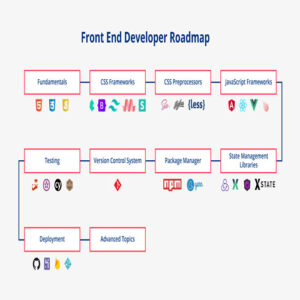In the expansive landscape of digital marketing, few concepts hold as much significance as keywords and their integral relationship with Search Engine Optimization (SEO). Keywords serve as the cornerstone of SEO strategies, shaping the visibility and relevance of online content within the vast expanse of search engine results. Delving deeper into the intricacies of keywords in SEO unveils their multifaceted nature and the pivotal role they play in driving organic traffic, enhancing user engagement, and ultimately bolstering the online presence of businesses and individuals alike.
Defining Keywords in SEO
At its core, a keyword refers to a specific word or phrase that encapsulates the essence of a search query initiated by a user on a search engine. These words act as digital signposts, guiding individuals toward content that aligns with their informational needs, interests, or intentions. Keywords encapsulate the language of search, bridging the chasm between user intent and online content, thereby facilitating the discovery of relevant information amidst the vast expanses of the internet.

Types of Keywords in SEO
Keywords manifest in various forms, each tailored to accommodate the diverse array of search queries permeating the digital sphere. Broadly categorized, keywords can be classified into three primary types:
- Short-Tail Keywords: These are concise, one or two-word phrases that encompass broad concepts or topics. While short-tail keywords boast high search volumes, they often harbor intense competition, making it challenging for content to rank prominently in search results.
- Long-Tail Keywords: Contrary to their short-tail counterparts, long-tail keywords comprise longer, more specific phrases that cater to niche or specialized queries. Although long-tail keywords exhibit lower search volumes, they harbor greater intent specificity, thereby attracting more qualified traffic and boasting higher conversion rates.
- LSI Keywords (Latent Semantic Indexing): LSI keywords represent semantically related terms or phrases that augment the contextual relevance and depth of content. By incorporating LSI keywords, content creators can enhance the comprehensiveness of their offerings while bolstering their visibility across a broader spectrum of search queries.
The Role of Keywords in SEO
Within the realm of SEO, keywords serve as the linchpin that binds content to search engine algorithms, dictating the visibility and ranking of web pages within search results. A comprehensive understanding of keywords enables SEO practitioners to craft tailored strategies aimed at optimizing content for maximum visibility and resonance with target audiences.
Keyword Research
Central to any effective SEO campaign is the process of keyword research, wherein practitioners employ an array of tools and techniques to identify high-impact keywords relevant to their niche or industry. Through meticulous research, SEO professionals gain insights into search volume, competition levels, and user intent, enabling them to strategically prioritize and target keywords in SEO that offer the optimal balance between search volume and competitiveness.
On-Page Optimization
Once identified, keywords in SEO are seamlessly woven into the fabric of website content through the process of on-page optimization. This entails strategically incorporating keywords into critical elements such as meta titles, meta descriptions, headers, and body content, thereby signaling to search engines the topical relevance and authority of the page.
Content Creation and Optimization
Keywords serve as guiding beacons in the creation and optimization of digital content, informing the structure, tone, and substance of articles, blog posts, product descriptions, and other forms of online collateral. By aligning content with targeted keywords, creators enhance the likelihood of their content surfacing prominently in search results, thereby amplifying its reach and impact.
User Experience and Intent Fulfillment
Beyond their technical ramifications, keywords in SEO also exert a profound influence on user experience and intent fulfillment. By crafting content that resonates with the informational needs and search intent of users, content creators can foster deeper engagement, cultivate brand loyalty, and ultimately drive conversions and revenue.
Adaptation and Evolution
In the dynamic arena of digital marketing, the landscape of keywords and SEO is in a perpetual state of flux, subject to the caprices of evolving search engine algorithms, shifting consumer behaviors, and emergent technological trends. To thrive amidst this ever-changing milieu, SEO practitioners must remain vigilant and adaptive, continuously refining their strategies and embracing innovation to stay abreast of the latest developments and capitalize on emerging opportunities.
Conclusion:
In essence, keywords in SEO represent the connective tissue that binds the disparate realms of search queries and online content, facilitating the seamless discovery and dissemination of information across the digital domain. Through their judicious selection, strategic integration, and iterative refinement, keywords empower SEO practitioners to unlock the full potential of their digital assets, driving visibility, engagement, and ultimately, success in the hypercompetitive landscape of the digital sphere. As the digital landscape continues to evolve and metamorphose, the symbiotic relationship between keywords and SEO will endure as a fundamental pillar of online success, guiding businesses and individuals toward the zenith of digital prominence and relevance.










